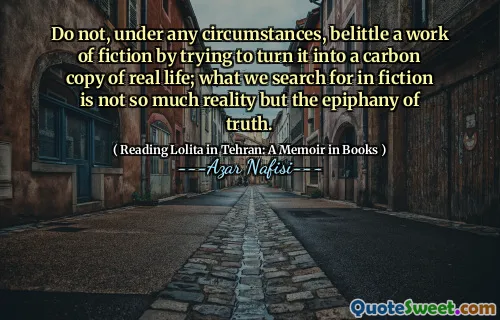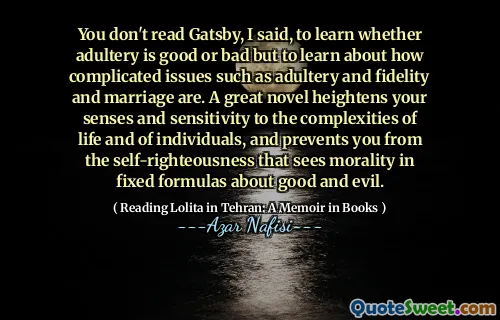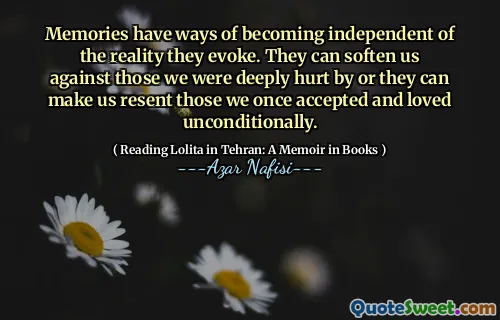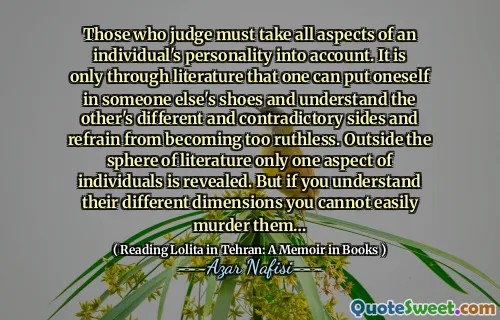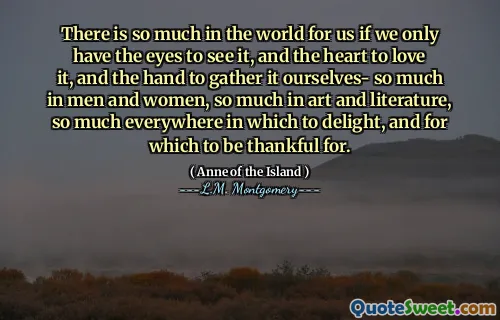
The highest form of morality is not to feel at home in ones own home." Most great works of the imagination were meant to make you feel like a stranger in your own home. The best fiction always forced us to question what we took for granted. It questioned traditions and expectations when they seemed too immutable. I told my students I wanted them in their readings to consider in what ways these works unsettled them, made them a little uneasy, made them look around and consider the world, like Alice in Wonderland, through different eyes."
📖 Azar Nafisi
In Azar Nafisi's "Reading Lolita in Tehran," the author discusses the impact of literature on our understanding of ourselves and the world around us. She posits that the greatest works of fiction often create a sense of alienation within us, challenging our established beliefs and traditions. This discomfort prompts readers to reevaluate what they have always accepted as normal and pushes them to explore new perspectives. Nafisi encourages her students to embrace this unsettling feeling as a catalyst for deeper reflection.
Nafisi highlights that great literature invites us to step outside of our comfort zones. By feeling like a stranger in familiar surroundings, readers can confront the rigidity of societal norms and expectations. Through this lens, works like "Alice in Wonderland" serve as powerful tools for examining our own realities. Ultimately, the act of questioning and reflecting on our world, inspired by literature, enriches our moral and philosophical comprehension of life.

